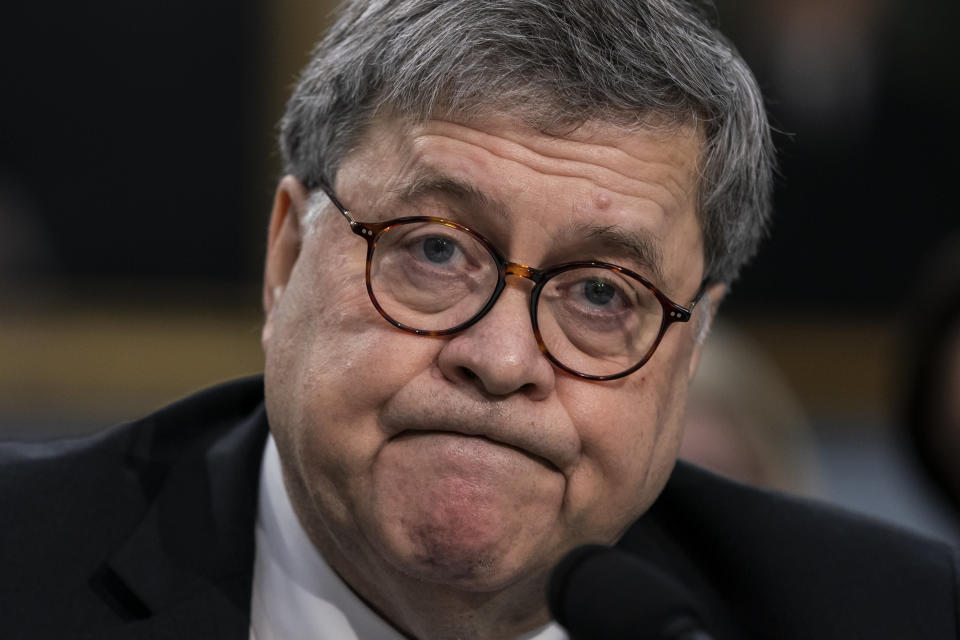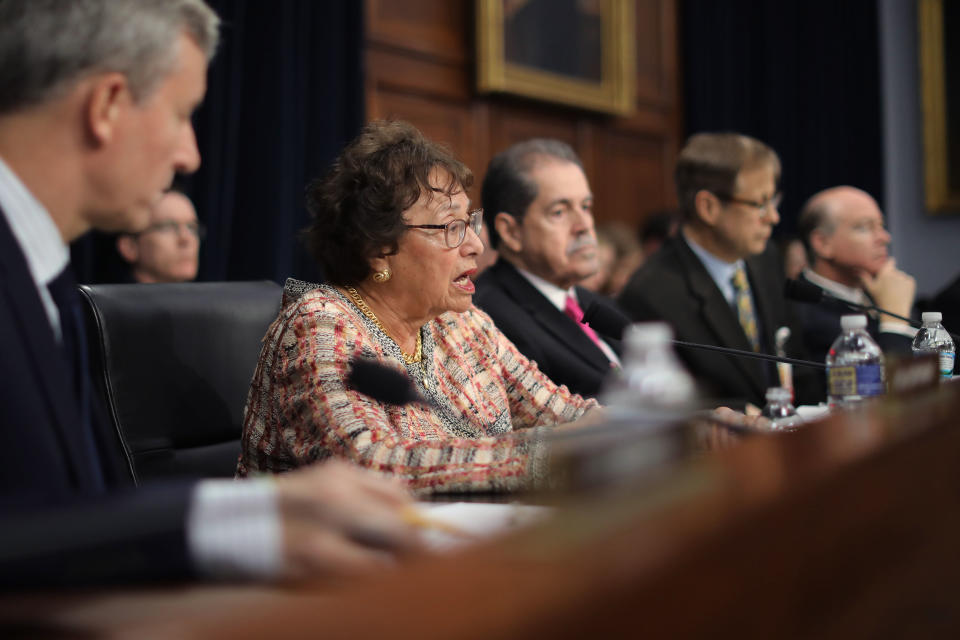Barr stonewalls Congress on Mueller report but promises edited version 'hopefully within a week'
Appearing before Congress for the first time since submitting his summary of special counsel Robert Mueller’s investigation of the 2016 campaign, Attorney General William Barr pushed back against giving more details of the report, which he said found no collusion between President Trump's campaign and Russia.
Still, members of the House Appropriations subcommittee for the Commerce and Justice Departments opened the hearing by calling attention to “the elephant in the room.”
“This Congress voted unanimously to see that report,” said subcommittee Chairman Jose Serrano, D-N.Y. “It would strike a serious blow to our system and yes to our democracy if that report is not fully seen.”
Rep. Nita Lowey, chairwoman of the full Appropriations Committee, accused Barr of “cherry-pick(ing) from the report to draw the most favorable conclusion possible" for Trump.

In his opening statement, Barr didn’t defend or even address his summary of the report but instead focused on Trump’s 2020 budget request for the Department of Justice.
Lowey pressed Barr about the process behind his summary, asking how many discussions or debates took place around the evidence and conclusions and the number of staff that helped summarize a 400-page report into four pages.
“How did you do it?” asked Lowey.
“The thinking of the special counsel was not a mystery to the people at the Department of Justice prior to his submission of the report,” said Barr. “He had been interacting and his people had been interacting with the deputy attorney general and lawyers supporting the deputy attorney general in his supervision of the special counsel.
“There was some inkling as to some of the thinking of the special counsel,” added Barr. He said he’d met with Mueller and his team early March and had a preliminary discussion about the report. “So we had an inkling as to what was coming our direction,” he said.
Barr said after receiving the full report from Mueller on Friday, March 22, his team worked about two and a half days to prepare the summary for Congress by Sunday.
Barr’s calm was shaken by a barrage of questions about whether the president has seen the report.
“Did the White House see the report before you released your summarizing letter? Has the White House seen it since then? Have they been briefed on the contents beyond what was in your summarizing letter to the Judiciary Committee?” asked Lowey.

“I’ve said what I'm going to say about the report today,” said Barr. “I’ve issued three letters about it, and I was willing to discuss the historic information about how the report came to me and my decision on Sunday. But I’ve already laid out the process that is going forward to release these reports, hopefully within a week. And I’m not going to say anything more about it until the report is out and everyone has a chance to look at it.”
Barr told Rep. Grace Meng, D-N.Y., that the White House was not alerted about his letters before they were sent to Congress. But later in the hearing, he changed his account.
“I checked with my staff and was told that just before the letters were out — after they were finalized and just before they went out — we did advise the White House counsel’s office that the letters were being sent, but they were not allowed or even asked to make any changes to the letter,” said Barr. “But we notified them before we issued them.
“I think it may have been read to them, but they did not get to see the letter,” he added.
“I have not read the Mueller Report yet, even though I have every right to do so.” Trump tweeted on April 6. “Only know the conclusions, and on the big one, No Collusion. Likewise, recommendations made to our great A.G. who found No Obstruction.”
Hoping to see the full, unredacted report, Democrats voted last week to authorize a subpoena.
Barr outlined his process for redacting the report and stated the four areas to be blacked out will include information that is relevant to a grand jury, that the intelligence community finds will reveal sources and methods, that would interfere with ongoing prosecutions, and would implicate the privacy of "peripheral players” who haven’t been charged. Barr said Mueller is helping the Justice Department select what will be redacted.
“I’ll be in the position, as I’ve said, in a week to release the report,” said Barr. “People can then read the report. I’ve already promised the Judiciary Committees that I would appear as soon as they’re able to schedule a hearing after the report is released. So, I’m not going to discuss it any further until after the report is out.”

_____
Read more from Yahoo News:



